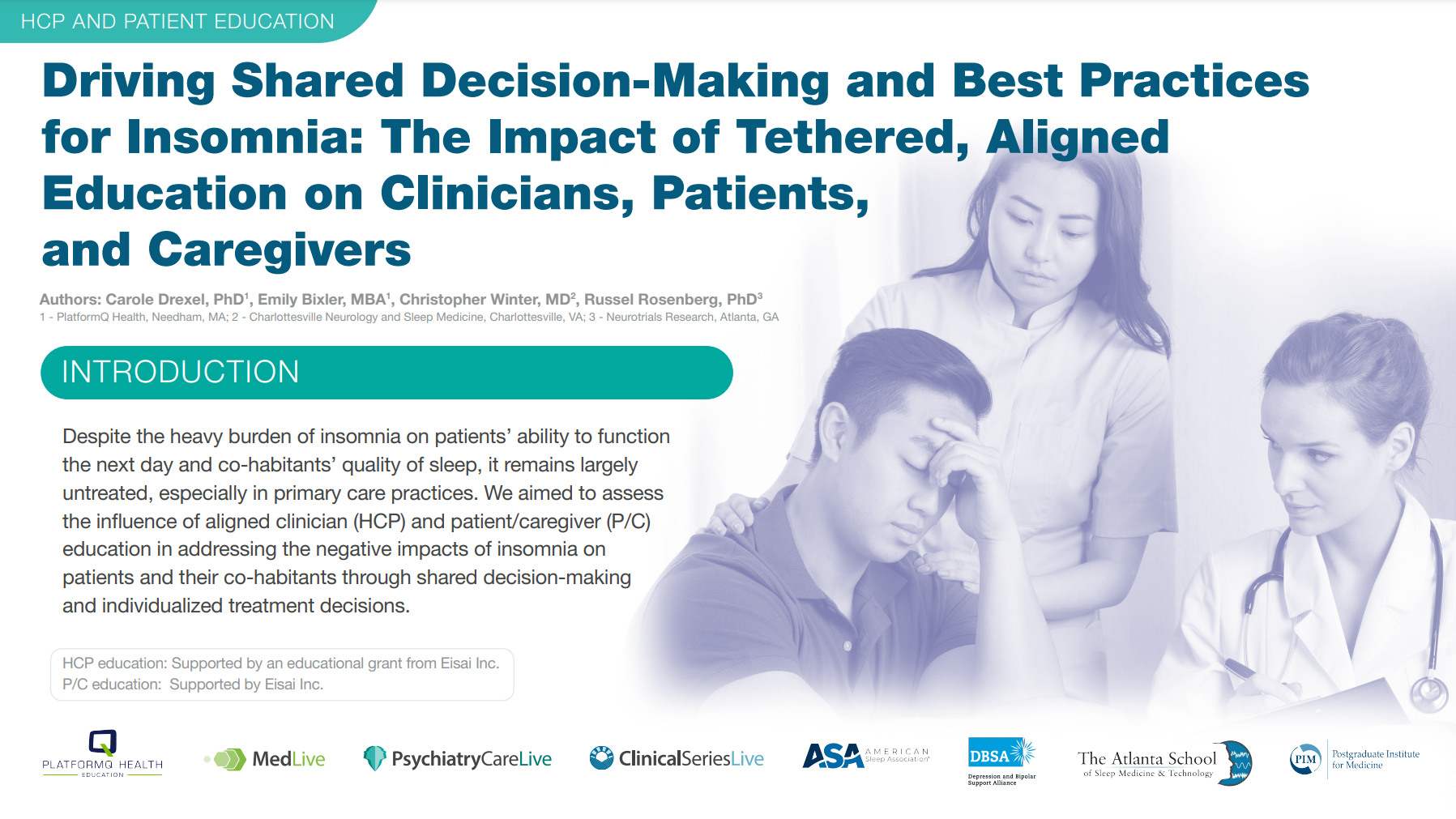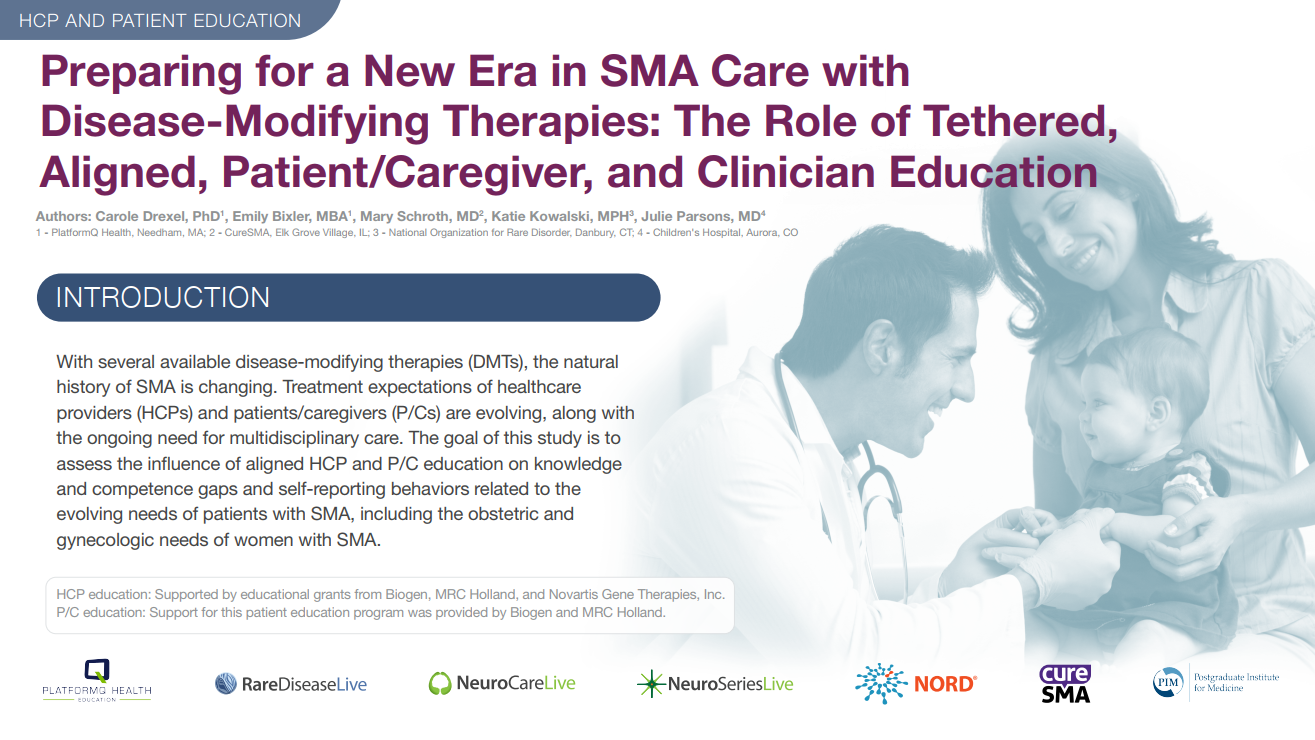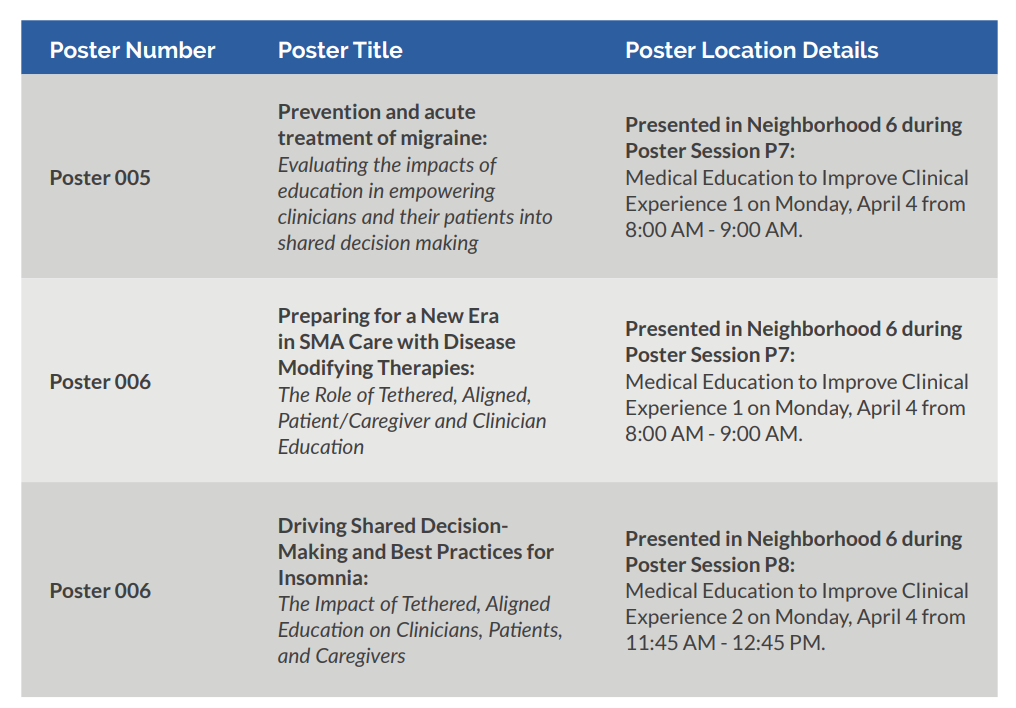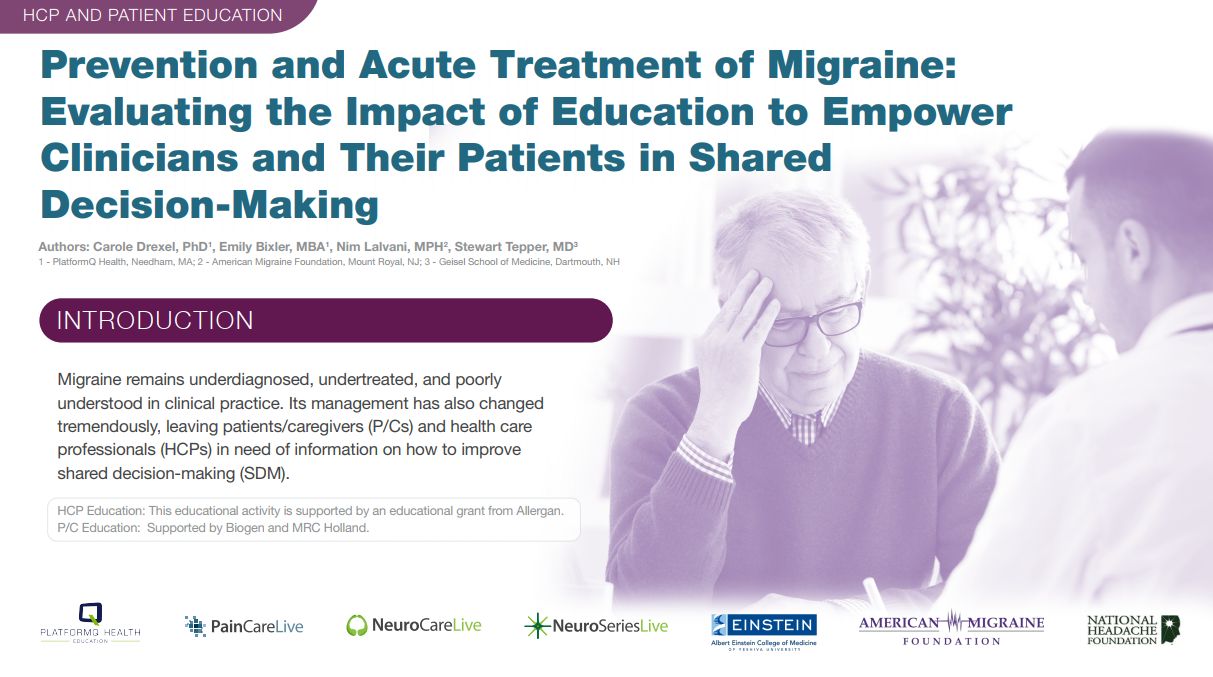Aligned Education Improves Patient Outcomes Across CME Programs
The American Academy of Neurology’s Annual Conference kicks off on April 2, 2022 in Seattle, featuring exclusive neurology science and education.
We’re pleased to share that PlatformQ Health has three posters published at the event, highlighting the outcomes of three aligned patient/provider education for neurological conditions, including migraines, insomnia, and spinal muscular atrophy (SMA). Each program featured a session for health care providers (HCPs) and one for patients and caregivers, with the goal of closing knowledge gaps and aligning expectations between patients and providers.
Driving Shared Decision-making and Best Practices for Insomnia
Insomnia remains largely untreated, particularly in primary care settings. This program was designed to assess the influence of aligned clinician and patient education in addressing the negative impacts of insomnia on patients and their partners and how shared decision-making and individualized treatment decisions can improve insomnia management.
1735 HCP learners attended the program, and reported an average of 14.4 visits of patients with insomnia/sleep issues reported per week. Average time in session was more than 36 minutes. For the patient/caregiver session, total engagement was 17,163, with 67% being people with insomnia.
98% of HCP learners reported that the activity positively impacted patient experience/outcomes, and 95% reported the activity positively impacted clinical practice. 58% of caregivers and patients also reported the activity positively impacted health-related behaviors.

View the full Insomnia Poster Presentation.
Prevention and Acute Treatment of Migraines
Migraines remain underdiagnosed and undertreated in clinical practice, yet the opportunities for management have improved over the years. This has resulted in a learning gap. This program examined the causes of migraines, assessed the safety and efficacy of targeted agents against traditional treatment options, and identified clinical barriers to migraine management.
776 HCP learners joined the program, with an average of more than 38 minutes
in session. For the patient/caregiver sesion, total engagement was 22,521.
98% of HCP learners reported the activity positively impacted patient experience/outcomes, and 94% reported that the activity positively impacted clinical practice. On the patient/caregiver side, 47% reported that the activity impacted their health-related behaviors.
View the full Migraine Poster Presentation.
Preparing for A New Era in SMA Care with Disease-modifying Therapies
The emergence of disease-modifying therapies has changed the treatment of patients with SMA. This program was designed to align HCP and patient/caregiver education, and incorporate the obstetric and gynecologic needs of women with SMA.
753 HCP learners joined the program, reporting an average of 9.7 SMA patient visits weekly. Participants were highly engaged in the program, with an average of more than 34 minutes in session. For the patient/caregiver program, total engagement was 23,688.
91% of HCP learners reported that the activity positively impacted clinical practice as well as patient experiences/outcomes, while 55% of patients and caregivers reported that the activity positively impacted their control of healthcare decisions.
In all three programs, the use of aligned/tethered education illuminated areas of disconnect between HCPs and patients. Polling conducted prior to and after each program supported the positive impacts of aligned/tethered education to help prepare providers, patients, and their families for evolving healthcare options.

View the full SMA Poster Presentation.
Have any questions about the posters or our educational initiatives? Email us at digital@platformq.com.



